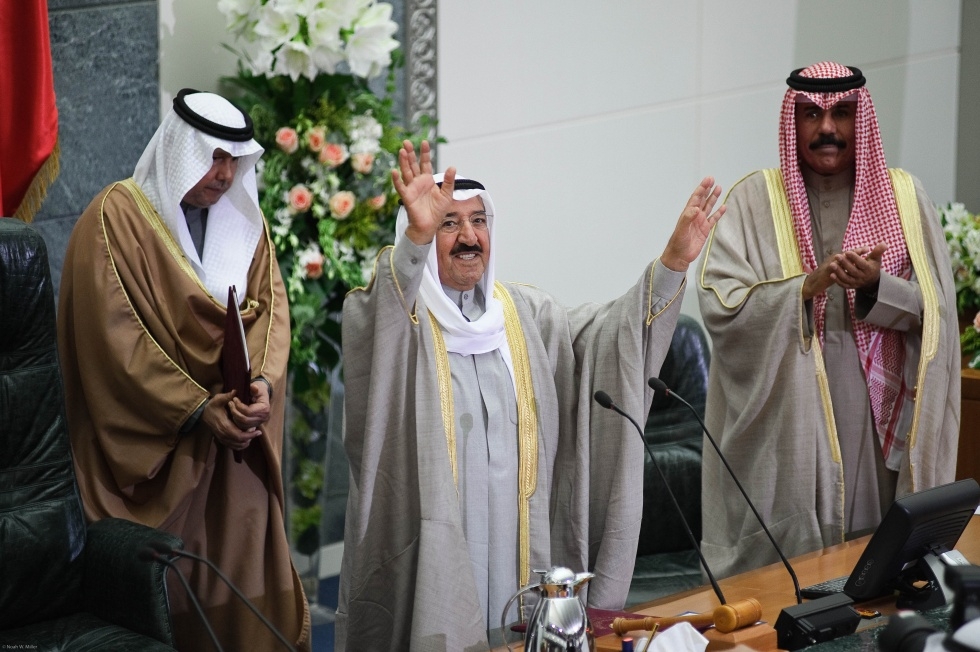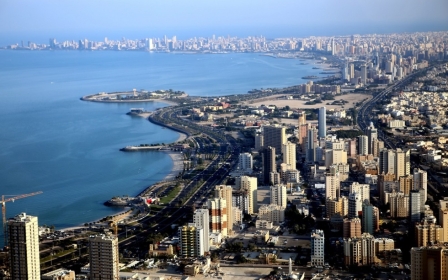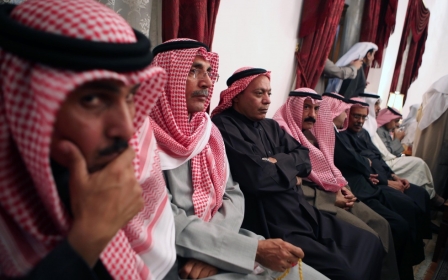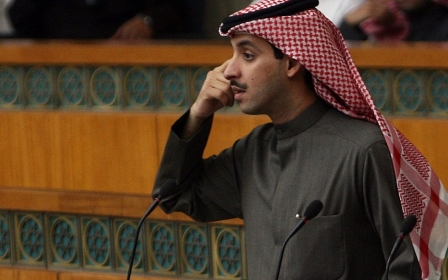Kuwait cracks down on online dissent

Kuwaiti authorities on Thursday sent a political activist to prison for tweets deemed insulting to the emir, amid a heightening crackdown on online dissent in the tiny oil-rich Gulf state.
Abdulaziz al-Mutairi was sentenced to five years in prison with hard labour for undisclosed tweets the court said had insulted Emir Sabah al-Ahmad al-Jaber al-Sabah. The appeal court ruling lengthened an original two-year term to five years, according to the written verdict.
Secret police late on Wednesday arrested prominent rights and online activist Mohammad al-Ajmi outside his home for "unknown reasons," the National Committee for Monitoring Violations, an independent rights group of which Ajmi is a member, said on its Twitter account.
Online activists and former MPs said on Twitter that Ajmi was being held for questioning over tweets he made on Saudi Arabia.
Translation: I can’t feel upset about any Gulf ruler. These emotions I have no control over. But when it comes to death, there’s no place for ridicule or gloating. I can only be silent.
After the announcement of King Abdullah’s death in Saudi Arabia on 23 January, Kuwaiti authorities ordered three days of official mourning and issued a statement saying: "Tthe nation has lost an outstanding leader, who served his country and people a lot, and was a symbol of sincerity, honesty and commitment to values and principles.”
Security sources told local daily Al Rai criticism of King Abdullah online would not be tolerated.
“Such tweets and remarks are punishable by the law and are totally rejected by our traditions and customs,” said the unnamed source. “Kuwait does not tolerate abuse and transgression of values and morals.”
Kuwait’s Ministry of Endowments and Islamic Affairs is also looking into reports that some Imams did not perform absentee prayers to pay respect to the late King Abdullah on 23 January.
Nawaf al-Hendal, a leading rights activist, said at least five people have been detained by state security for tweets deemed offensive to the late Saudi King.
Hendal, currently in Geneva, also said arrest warrants have been issued against him and five other tweeters for the same reason.
“I didn’t say anything (about King Abdullah). I think (the arrest warrant) is not about tweets – it is all about my human rights activism,” he said. “I am in Geneva and have attended the (UN Human Rights Council) session on Kuwait to speak about the violations taking place in my country.”
Hendal said friends who work at Kuwait International Airport told him his name had been added to a list of those wanted for arrest. He will return to Kuwait on 31 January and expects to be immediately arrested.
“All my friends are in jail now,” he said. “People are being arrested for tweets about Saudi Arabia because the rulers of Kuwait do not want anyone to speak about the GCC (Gulf Cooperation Council) kings.”
“They (Gulf rulers) view any criticism or discussion of the kings as being dangerous for them – even if it comes from Twitter.”
The Gulf Centre for Human Rights, an independent body, said Hendal was being "targeted in order to intimidate him and others from working as defenders of human rights."
There was no word on the arrests from the interior ministry and the public prosecutor has not announced any charges.
Liberal former MP Saleh al-Mulla was detained for five days earlier this month for tweets deemed offensive to Egyptian President Abdul Fattah al-Sisi during a two-day visit to Kuwait.
He is to stand trial on 15 February.
And liberal MP Abdulhameed Dashti is facing trial for criticising Bahraini leaders, while former MP Mubarak al-Duwailah was questioned over comments critical of Abu Dhabi's rulers.
Since a political crisis in June 2012, Kuwaiti authorities have ramped up efforts to curtail dissent.
Courts have sentenced politicians, online activists and journalists to prison terms for exercising free speech rights, Human Rights Watch said this month.
New MEE newsletter: Jerusalem Dispatch
Sign up to get the latest insights and analysis on Israel-Palestine, alongside Turkey Unpacked and other MEE newsletters
Middle East Eye delivers independent and unrivalled coverage and analysis of the Middle East, North Africa and beyond. To learn more about republishing this content and the associated fees, please fill out this form. More about MEE can be found here.




